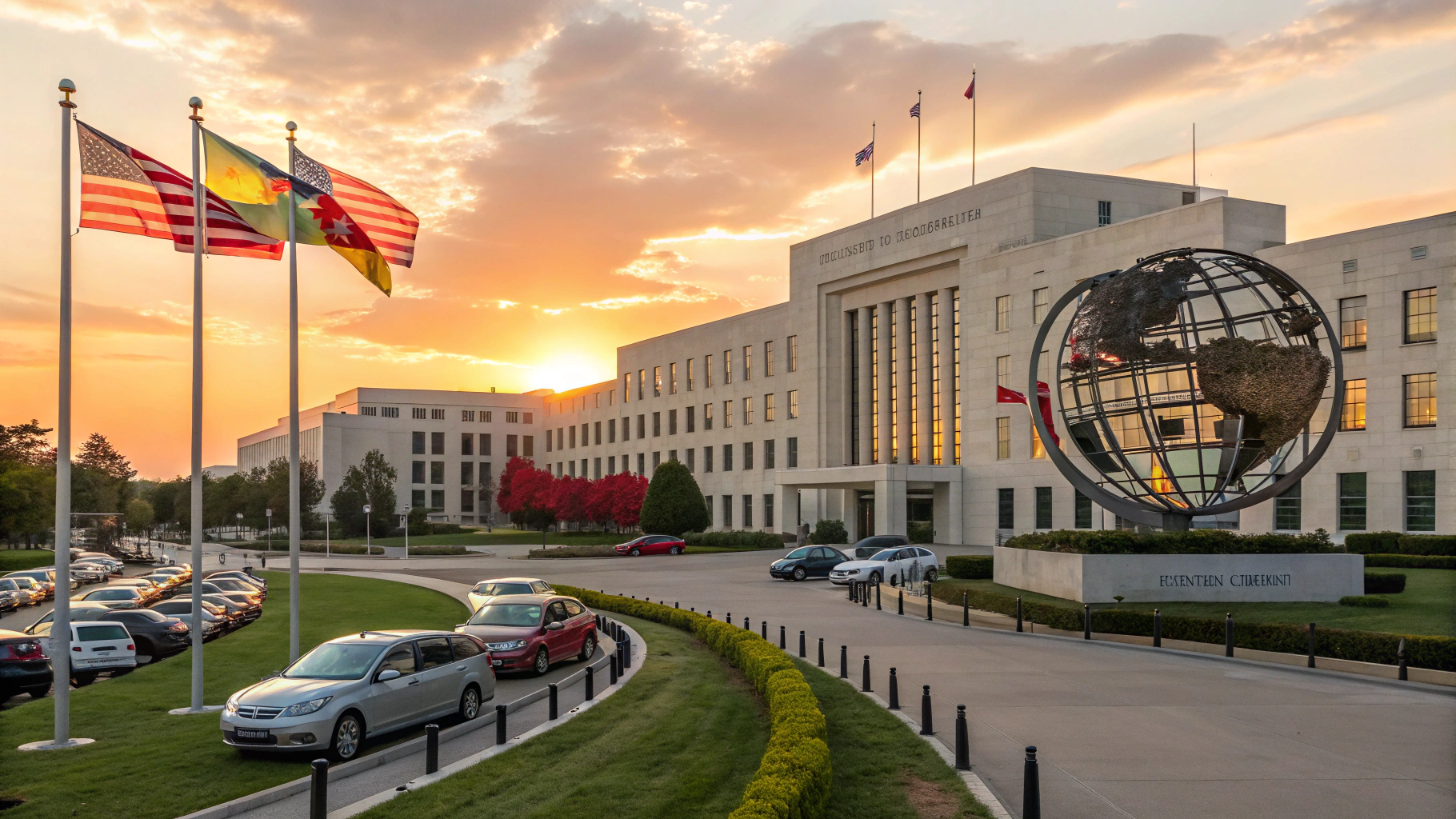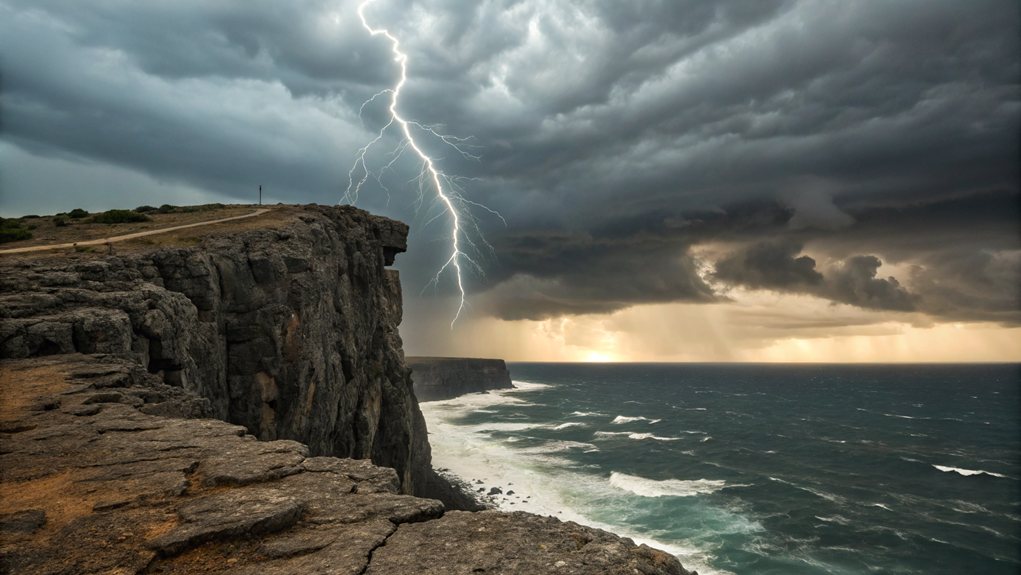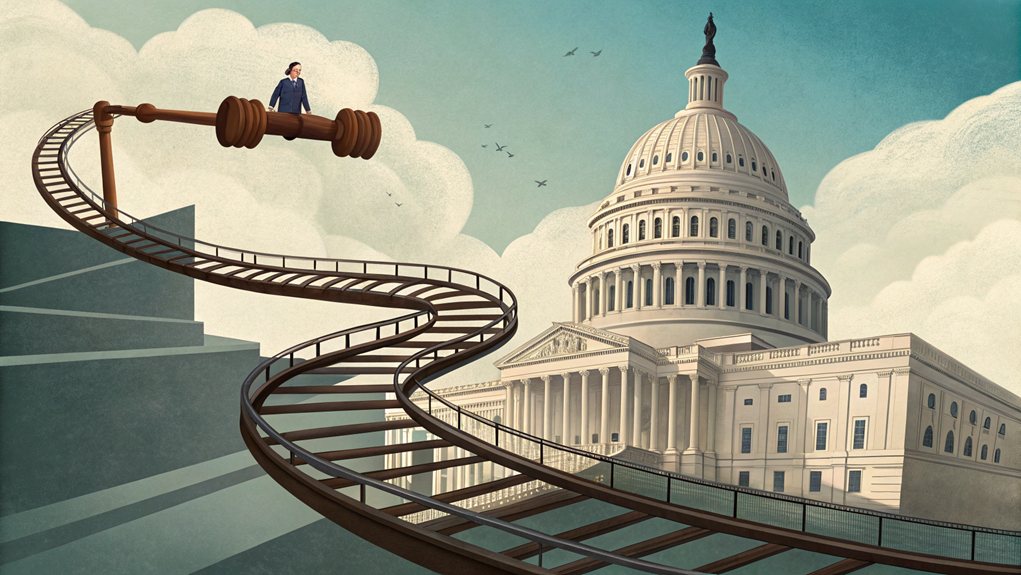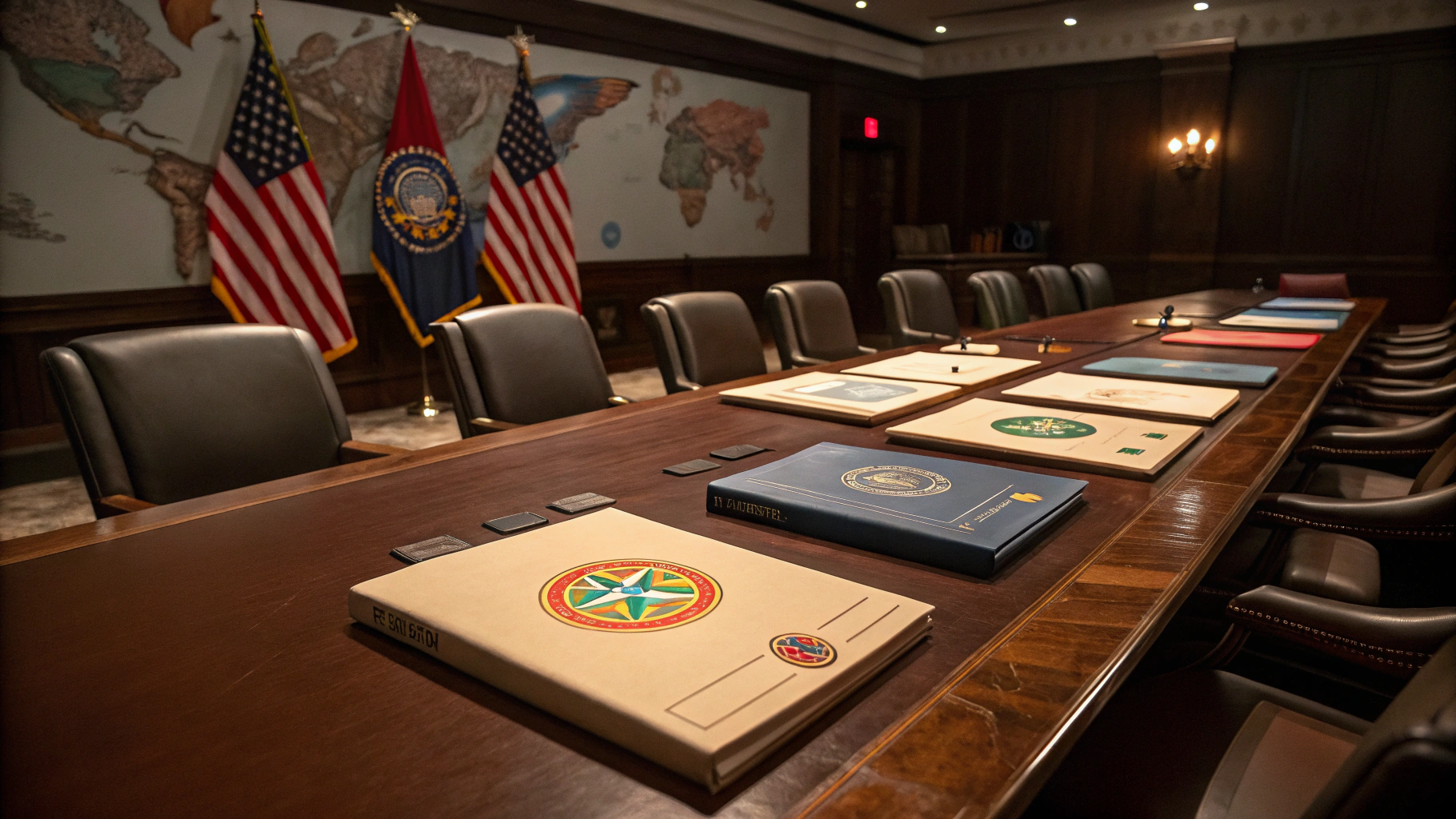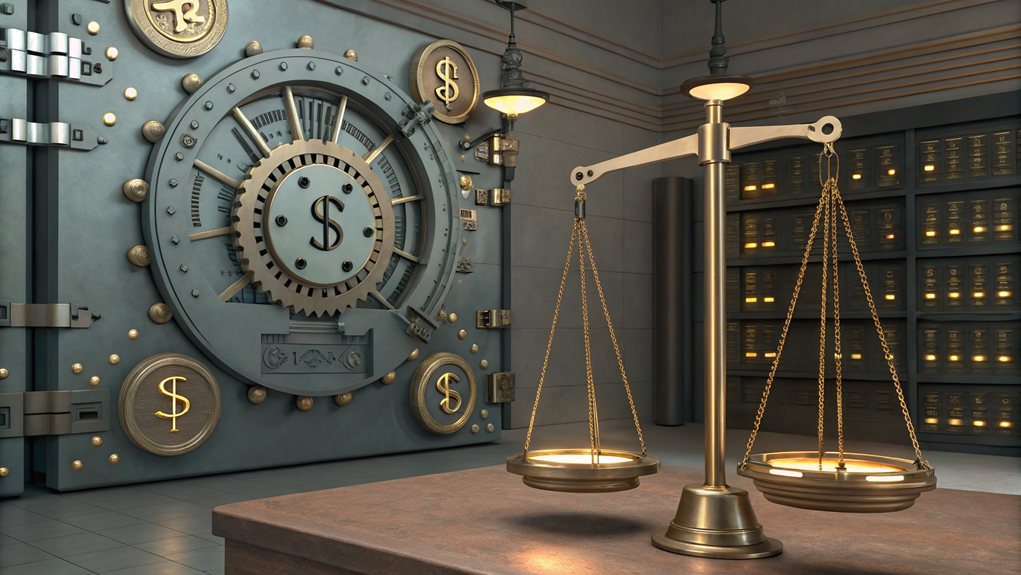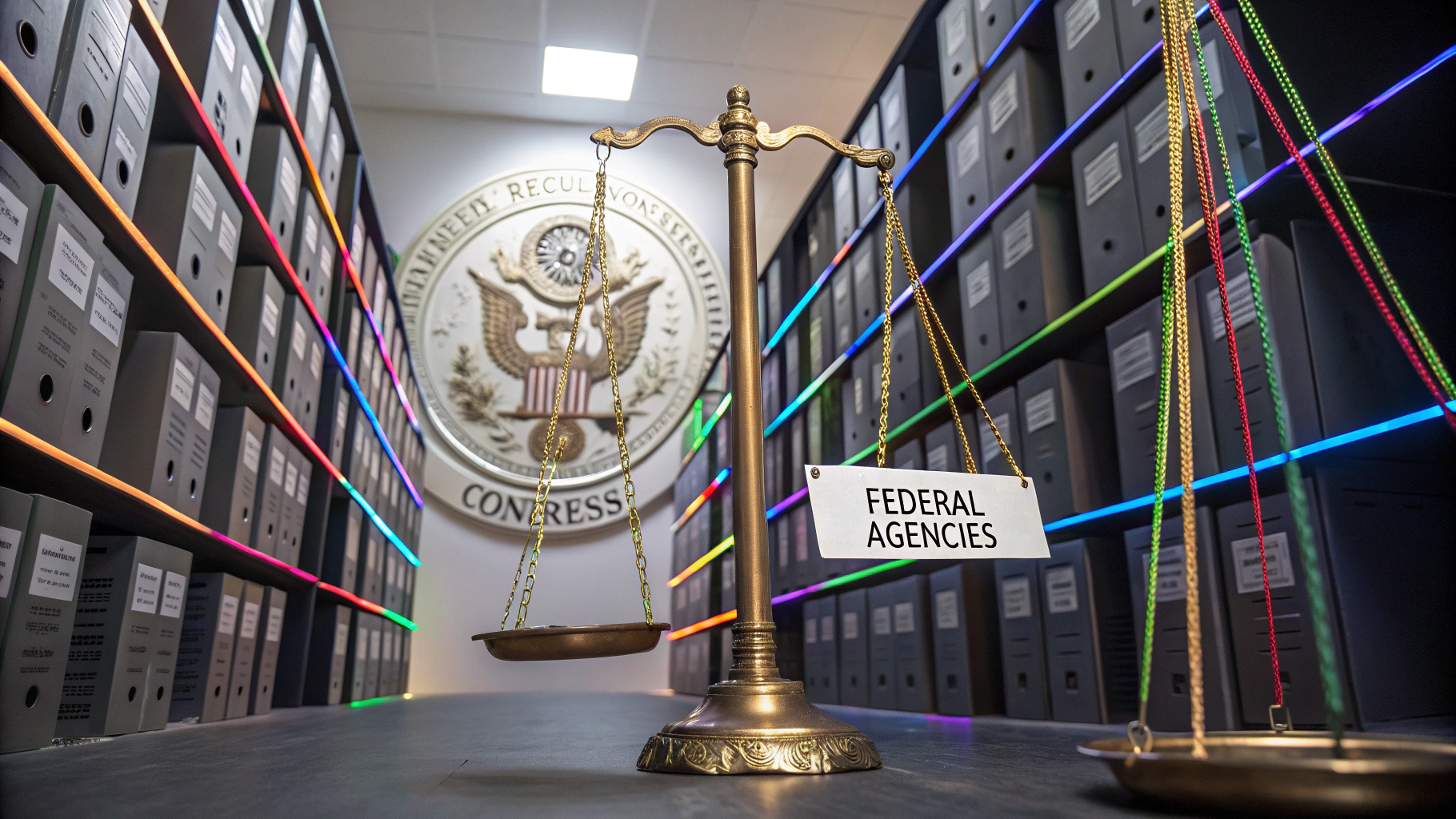The State Department is basically the U.S.'s diplomatic muscle. It creates foreign policy, negotiates treaties, and safeguards Americans abroad. With over 80,000 employees, they manage relations with 180 countries—yes, that's a lot of handshakes. They're not just about smoothing things over; they also promote American businesses and tackle global health issues. It's a big job with a lot on the line. Want to know how all those diplomatic dinners play into this? Stick around.
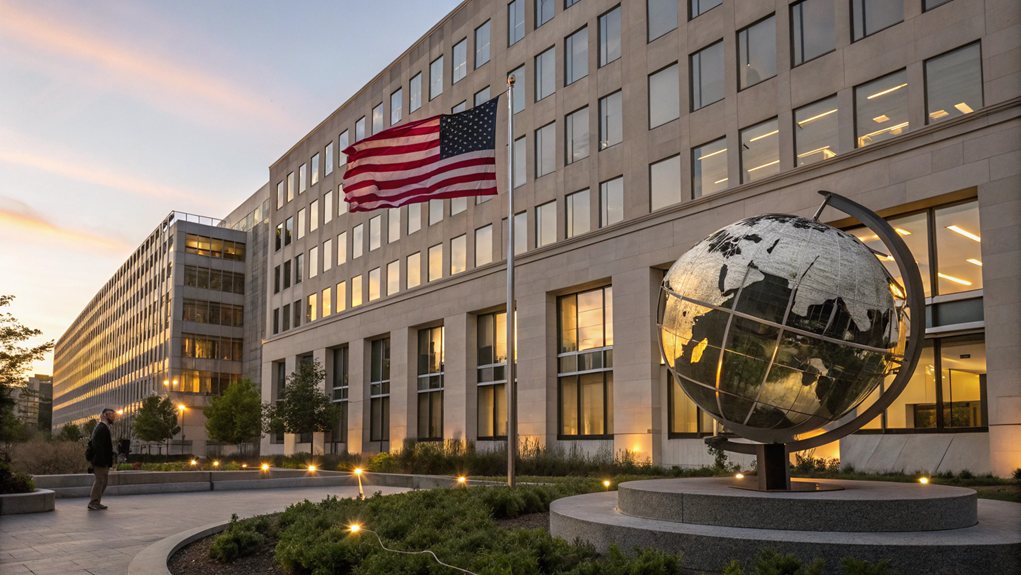
When it comes to U.S. foreign policy, the State Department is the big dog in the yard. It's the go-to agency for anything international. They handle everything from advising the president to negotiating treaties. If there's a diplomatic mission out there, you can bet the State Department is behind it, operating from their HQ in the Harry S Truman Building in Washington, D.C. They've got a lot of responsibility on their plate—protecting U.S. citizens abroad is just one of their many tasks.
The Secretary of State is the top dog. They're the chief executive officer of the department and a key member of the Cabinet. Below them, the Deputy Secretary and other high-ranking officials manage different aspects of the operation. Each of the six Under Secretaries oversees various bureaus, ensuring that no detail slips through the cracks. The Secretary of State plays a crucial role in advising the President on foreign policy decisions, shaping the nation's international stance.
The Secretary of State leads the charge, backed by a team of high-ranking officials managing crucial operations.
With a workforce that includes foreign service officers and civil service employees, they're well-staffed to handle the complexities of global relations. The Department of State employs a total of 80,214 employees, allowing for a comprehensive approach to diplomacy and international engagement. Additionally, the State Department is increasingly engaged in state involvement in foreign relations, recognizing that economic motivations drive states to pursue foreign relationships.
And let's not forget their diplomatic and consular services. The State Department maintains relations with around 180 countries. That's a lot of handshakes and "let's work together" talks. They run 271 diplomatic posts worldwide, second only to China. That's a serious commitment. They even issue passports and visas—essential when you want to leave the country or let others in.
Then there are the economic and commercial activities. The State Department boosts American businesses trying to break into international markets. They coordinate with other U.S. agencies to promote trade interests. It's all about pushing U.S. economic agendas, one negotiation at a time.
Finally, there's global health security. The State Department isn't just about politics and trade; they tackle health crises too. They support initiatives that fight pandemics. They understand that health issues don't stop at borders.
In short, the State Department is a multifaceted powerhouse shaping U.S. foreign policy in countless ways.
Frequently Asked Questions
How Does the State Department Impact Domestic Policies?
The State Department impacts domestic policies in sneaky ways.
Treaties? They can force changes in laws. Trade agreements? They can make or break jobs.
And let's not forget how they shape public opinion. When the State Department messes up, it can lead to political chaos at home.
Basically, they're like the quiet kid in class—always influencing the scene, but not always noticed until things get messy.
Domestic and foreign? Yeah, they're intertwined.
What Qualifications Are Required to Work at the State Department?
To snag a job at the State Department, one must be a U.S. citizen.
A bachelor's degree is usually the bare minimum, paired with a hefty dose of relevant experience.
Security clearance? You'll need that. Background checks are intense—think of it as a personal FBI investigation.
Foreign Service Officers must be flexible and ready to jet-set worldwide.
Oh, and good luck passing the FSOT; it's not exactly a walk in the park!
How Does the State Department Collaborate With the Military?
The State Department and the military? Oh, they're like a buddy cop duo.
They negotiate treaties, coordinate security, and even train foreign forces. Picture Foreign Service Officers in combat zones, mixing diplomacy with a side of action.
They tackle counterterrorism together and respond to crises like a well-rehearsed routine. It's all about ensuring military moves fit the U.S. foreign policy playbook.
Teamwork makes the dream work—or at least that's the hope.
What Are the Career Advancement Opportunities Within the State Department?
Career advancement in the State Department? Oh, it's a mixed bag.
There's professional development galore, and global assignments keep things spicy. Promotions depend on performance, so bring your A-game.
Leadership roles? They're there, but good luck standing out. Benefits like healthcare and student loan help sound great, but they come with the reality of frequent moves.
It's a wild ride, but for those who thrive on change, it might just be worth it.
How Does the State Department Handle Crises and Emergencies Abroad?
The State Department tackles crises abroad with a mix of urgency and strategy.
They activate the Consular Affairs Crisis Management System, which sounds fancy but is essential for keeping tabs on Americans in trouble.
When things get really hairy, they coordinate evacuations, sometimes even bringing in the military (rarely, thank goodness).
Communication? They've got WhatsApp and alerts.
It's all about safety, planning, and making sure families know their loved ones are okay.
